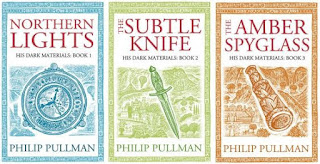Having just watched the official trailer for the impending season of Game of Thrones I joined the masses with an almighty squeeee. Plenty of soundbites, plenty of slow character shots, then fast cuts of incredible looking battle scenes and, of course, dragons.
It’s a testament to both the quality of the original story, the script adaptation of it, and the superb mix of acting and special effects that has made the series a phenomenon. I came into the book series relatively late, in 2008 when I was catching up on my fantasy reading prior to writing my own saga. At this stage, four books had been released, and I devoured them in quick succession—ebbing on the somewhat lacklustre fourth book, which I’m glad to say was succeeded in 2011 by the excellent ‘A Dance with Dragons.’ As books, they are every bit as gripping as the TV series, albeit with subtly different plotlines, and greater depth (as you’d expect). And, in the genre of fantasy literature, they had a not dissimilar impact to the TV series—namely reinvigorating a sense of maturity into the fantasy market.
 |
| Image from http://www.indiewire.com |
Yet all that has changed now. Martin’s literary influence inspired a cohort of darker fantasy writers: Joe Abercrombie, Scott Lynch, Lev Grossman, and Daniel Abraham amongst many. The tone of novels is far murkier, the blurring between hero and villain much less distinct. Yet although George RR Martin’s work has achieved prominence and is widely credited for the big shake-up in fantasy literature, Martin is the first to admit that others paved the way for the modern era. Beyond the classic fantasy authors influencing Martin (Leiber, Zelazny, Moorcock, Howard, Le Guin) there were definite precursors to his work, a number of which have gained a boost in attention in recent years. To me, Stephen Donaldson, Tad Williams, Glen Cook, and Robert Jordan are the stand out authors providing a modern fantasy platform to precede Martin’s ongoing series. My personal absolute favourite is Steven Erikson’s incredible ten book epic The Malazan Book of the Fallen which adds a complexity to the fantasy genre, and a brutal humour, that outshines George RR Martin not least because Erikson actually finished his series!
 |
| Image from http://the-void.co.uk |
Ultimately it boils down to what you want from your fantasy literature and series. Whereas I do enjoy the reading of darker styles of fantasy, in some ways it misses the mark. Often the darker style is focused on grey-area characters and upping the maturity with violence, horror, and sexual content. Yet one of the main draws of fantasy for me, and similarly science-fiction, is the ability to use the genre to consider larger philosophical and existential topics, embedded within the genre. I find the topics of destiny, higher purpose, religion and persecution, the nature of good and evil, and of heroism, drive me to read more fantasy-sci-fi than if they were presented in an academic text. For these topics, I've veered towards the astonishing China Melville, but not forgetting simpler works of fantasy like Philip Pullman's His Dark Materials… also due a TV series!!!
 |
| Image from http://www.independent.co.uk |
I’ll be watching eagerly.
Ross Kitson is a doctor, occasional blogger, full-time geek, and sporadic author of fantasy and YA sci-fi. Connect with Ross on Twitter.
Get even more book news in your inbox, sign up today!. Girl Who Reads is an Amazon advertising affiliate; a small commission is earned when purchases are made at Amazon using any Amazon links on this site. Thank you for supporting Girl Who Reads.



.png)
















0 comments:
Post a Comment